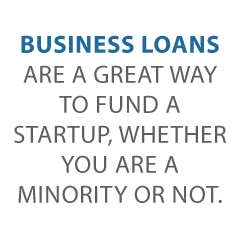
Where to Look for Startup Capital and How to Make Sure You Qualify
There is no startup capital genie that lives in a bottle. You can’t hope to find the magic lamp, rub it, and make all your entrepreneurial dreams come true. In contrast, finding startup capital is just the first hurdle in a line of many that you will have to jump over to get your business off the ground. Startup capital can come from a variety of sources. It takes hard work and some creativity, not to mention determination, to find the best start up capital option for you.
Startup Capital Doesn’t Come from a Genie in a Bottle
Don’t let that scare you though. Start up capital loans are highly attainable. However, your chances of success are much, much greater if you know exactly what to do, where to do it, and you have the right tools.
For example, you can’t build a house while sitting in a library with scissors and tape. When it comes to starting a business, especially in our current corona economy, you need the right tools. One tool you cannot do without is startup capital. However, you need to know where to look for startup business loans and what you have to do to get them. At least, that’s where you start.
Check out our best webinar with its trustworthy list of seven vendors to help you build business credit.
Startup Capital: Self-Funding
For most, this seems like the obvious best option. If you have the means, it can be for sure. No debt is always good. Still, even if you have the means to fund startup capital yourself, you may not want to tie up all that cash. Alternatively, you may not want to dip into your retirement or savings, though those are definitely possibilities. Which leads us to the other options.
Startup Capital: Investors
There was a time when investors were simply that, traditional investors. There are two new players in the field these days however, and they are significantly less formal.
Angel Investors
 Investopedia defines angel investors as those who “… invest in small startups or entrepreneurs. Often, angel investors are among an entrepreneur’s family and friends. The capital angel investors provide may be a one-time investment to help the business propel or an ongoing injection of money to support and carry the company through its difficult early stages.”
Investopedia defines angel investors as those who “… invest in small startups or entrepreneurs. Often, angel investors are among an entrepreneur’s family and friends. The capital angel investors provide may be a one-time investment to help the business propel or an ongoing injection of money to support and carry the company through its difficult early stages.”
Usually, they do not lend to the same person twice, even if that person pays them as agreed. That’s because they like to spread their risk over a lot of people and businesses to make sure they earn a profit. They are also usually a lot less formal than most types of funding. An angel investor can be anyone. Seriously, it could be your mom or someone you met through networking.
The best way to find these kinds of angel investors is to ask people you know. Also, you can try an angel investors website or network. For example, Gust keeps a database of investors, companies, and programs. Startups can search for business plan competitions and other opportunities.
Crowdfunding
This is an increasingly popular option for startup capital.
Basically, Crowdfunding is a type of investment option. The thing is, you get a lot of smaller investments from a lot of people. Hence the term, crowdfunding. This is in contrast to getting the bulk of your small business funding from one or two larger investors. Still, not every campaign is successful. Trully, few are.
First, you have to figure out which crowdfunding platform is best for your situation . Kickstarter and Indiegogo are two of the most popular.
Startup Capital: SBA Loans
These are small-business loans guaranteed by the Small Business Administration. Participating lenders, mostly banks, distribute the funds. They can guarantee up to 85% of loans of $150,000 or less, and loans that are more than $150,000 they will guarantee up to 75%. The maximum loan amount they offer is $5 million.
Since they have a government guarantee, financial institutions are able to offer these loans at lower interest rates.
To be eligible for SBA Loans, you must meet certain qualifications. These include:
- Your business must be for profit.
- Your business must be inside the US.
- Business owners must invest equity.
- You must have exhausted all other financing options.
- Your business must qualify as a small business.
- Your business must be in an eligible industry.
Best SBA Loan Programs for Startup Capital
There are a ton of loan programs available through The Small Business Administration. These are those that are best suited for startup capital.
Check out our best webinar with its trustworthy list of seven vendors to help you build business credit.
7(a) Loans
This is the Small Business Administration’s most popular loan program. For one, it offers federally funded term loans up to $5 million. Furthermore, the funds can be used for expansion, purchasing equipment, working capital and more. Banks, credit unions, and other specialized institutions, in partnership with the SBA, process these funds.
504 Loans
Loans are available up to $5 million. Funds can buy machinery, facilities, or land. Mostly, they are for expansion. Private sector lenders or nonprofits process and disburse these loans. They especially work well for commercial real estate purchases.
Microloans
Up to $50,000 is available through the microloan program. This money can be for starting a business, purchasing equipment, buying inventory, or for working capital. Community based nonprofits handle microloan programs as intermediaries. In contrast, financing comes directly from the Small Business Administration.
Startup Capital: Private Lenders
Generally, private lenders can be a little more relaxed with requirements. Yet, they also tend to have higher interest rates and less favorable terms.
They usually have options for all types of financings at varying rates. There are a ton out there, but here are a few to get you started if you need to go this route for small business funding.
Upstart
Upstart is an online lender using innovative new technology. They question whether financial information and FICO alone can really determine the risk associated with a specific borrower. Instead, they are using a combination of machine learning and AI to gather alternative data. They then use this data to make credit decisions.
This alternative data includes things such as phone bills, rent, deposits, withdrawals, and even other information that is not directly tied to finances. Software from the company learns and improves based on this data.
They offer various types of financing products to fit a wide variety of needs. This may include credit card refinancing, student loans, and pretty much anything in-between. Upstart has something for almost everyone.
StreetShares
StreetShares began as a service to veterans. Now, they offer term loans, lines of credit, and contract financing. In addition, they offer small business loan investment options. The maximum loan amount is $250,000. Pre-Approval only takes a few minutes. They use a soft pull on your credit so as not to affect your score.
StreetShares eligibility requirements include being in business for at least 12 months with annual revenue of $25,000. Exceptions do exist however. Loans to companies in business for at least 6 months that have higher earnings can be approved on a case by case basis.
Kabbage
Kabbage is a well known online lender. They offer a small business line of credit that can help businesses accomplish business goals quickly. The minimum loan amount is $500 and the maximum is $250,000. They require you to be in business for at least one year and have $50,000 or more in annual revenue. Alternatively, $4,200 or more per month in the previous 3 month period will meet the revenue requirement..
Kabbage is great if you need cash quickly. Also, their non-traditional approach puts less weight on your credit score, so they may work better for some borrowers than other lenders.
Fundation
Fundation provides both term business loans online and lines of credit. It is most known for its working capital funding options. These are funds meant to help cover the day-to-day costs of running a business rather than larger projects. Typically, these funds come in the form of a line-of-credit.
Their minimum loan amount Fundation offers is $20,000 while the maximum loan amount is $500,000. They require you to be in business for at least 12 months and have annual revenue of at least $100,000. To be eligible, your personal credit score must be no less than 600. Additionally, you must have at least 3 full time employees. That number can include yourself. Business owners cannot live or operate their business in North Dakota, South Dakota, or Nevada.
You Cannot Get Startup Capital Without a Business Plan
Not only is a business plan necessary when it comes to getting business loans, but it is necessary to the day to day operations of your business as well. Virtually all successful entrepreneurs will tell you that a major key to success is to plan to work and work the plan.
Most traditional lenders are going to need to see a business plan as part of the loan application process. Truthfully, it’s best to hire a professional business plan writer if possible. They can work with you to get all the necessary information and put it together in the traditional format.
If you cannot hire a business plan writer however, there are other options. The Small Business Administration offers a template. Furthermore, your local small business development center may also be able to help.
For a business plan to be taken seriously by a lender, it needs to include the following:
A Strong Opening
An Executive Summary
This is a complete summary of the business idea.
Description
The description goes into further detail than the summary, describing the business. This is where you work to build excitement about your business.
Check out our best webinar with its trustworthy list of seven vendors to help you build business credit.
Strategies
Layout your plan for getting started. Do you have a marketing plan, area in mind for location, or idea of how many employees you will start with? What is your ramp up plan?
Market Analysis
What need will your business fill, and for who? Are you a child care facility filling a need for affordable child care for working moms? Are you an eatery filling a need for a lunch spot for those working downtown? How will your business fill the need? All of that information goes in this section.
Competitive Analysis
Is there already a business working to fill this need? Is there room for more? How do you plan to compete with them?
If you are not a new business, this will be a market analysis that supports your need for funding, or that shows your business is strong and growing.
The Plan
Plan for Design and Development
How is all of this going to play out, from start to finish. What steps are you going to take? This is more detailed than your strategies section.
Plan for Operation and Management
Who will own or does own the business and who will run or currently runs it from day to day. This could be as simple as stating that you are the sole owner and operator, or as complicated as laying out a complete partnership plan or board or directors’ format. It just depends on how your business works.
Financials
This section includes current financials, projections, and a budget plan for the loan funds you are applying for. Lenders need to see that you know how to handle the funds you get, and that you have a plan to pay them back.
Now is the Time to Build Fundability
The real key to getting startup capital and being able to get working capital whenever you need it is fundability. However, strong fundability doesn’t just happen. You need to start building it from the very beginning. If you didn’t do that, you need to start right now. There are a number of factors that play into fundability, and many of them have to do with how your business is even set up. That affects everything. Business credit is also a huge piece of fundability, but it isn’t everything. Learn all you can about fundability. Work to make it strong. If you do, you will always have access to the capital you need to start, run, and grow your business.
The post Where to Look for Startup Capital and How to Make Sure You Qualify appeared first on Credit Suite.






